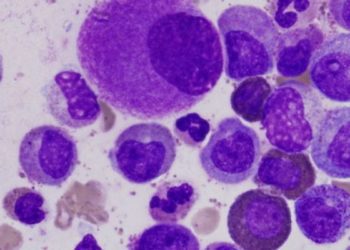Remote patient monitoring may improve cardiovascular outcomes in patients with hypertension
1. In this observational study, patients in high remote patient monitoring (RPM) practices had better hypertension outcomes than those at matched low-RPM practices.
2. Patients in high-RPM practices had more primary care physician outpatient visits and total hypertension-related spending.
Evidence Rating Level: 2 (Good)
Study Rundown: RPM is a healthcare delivery method where clinicians monitor their patients using technology, outside of the traditional clinical setting. The practice of RPM has rapidly increased since the coronavirus disease 2019 pandemic, with significant use for hypertension management. Although, there is mixed evidence regarding its efficacy in clinical care, outcomes, and spending. This observational study, which aimed to emulate a longitudinal, cluster randomized controlled trial, investigated the effect of RPM on hypertension care and spending through a regression analysis comparing outcomes for patients with hypertension at high-RPM practices versus low-RPM practices. Overall, it demonstrated that patients in high-RPM had better hypertension outcomes than those at matched low-RPM practices including an increase in hypertension medication prescription refills, an increase in unique medications prescribed, reduced testing, and fewer hypertension-related acute care encounters. However, these patients also exhibited increases in primary care physician (PCP) outpatient visits and higher hypertension-related spending. The study also had several limitations to its design as it was unable to observe RPM that was not billed by clinicians and not all patients in a high-RPM practice actually underwent RPM. Moreover, the investigators did not have access to clinical outcomes including blood pressure measurements, and thus, they were not included in patient matching and outcome measurement.
Click to read the study in AIM
In-Depth [prospective observational study]: This observational study aimed to investigate the efficacy of RPM on hypertension care outcomes. Using 100% traditional Medicare claims, a cohort of patients with a diagnosis of hypertension in 2019 who filled at least one prescription for an anti-hypertensive medication was identified and patients were attributed to the practice that accounted for the majority of their primary care service spending. These practices were then categorized as high-RPM (25% or more) or low-RPM (less than 2.5%) based on the proportion of their attributed hypertension patients who received RPM in 2020. Each high-RPM (treated) practice was matched with up to five low-RPM (control) practices using cardinality matching, which paired treated and control practices using specified covariate balance requirements. The primary outcomes were hypertensive medication use, outpatient visit use, testing and imaging use, hypertension-related acute care use, and hypertension-related spending. In this study, 192 high-RPM practices with 19,978 patients and 16,381 low-RPM practices with 4.6 million patients were identified. Upon cardinality matching, the 192 high-RPM practices were matched to 942 low-RPM control practices. With respect to the primary outcomes from 2019 to 2021, patients from high-RPM practices exhibited a 3.3% increase (95% Confidence Interval [CI], 1.9% to 4.8%) in hypertension medication fills compared to those from low-RPM control practices. Patients from high-RPM practices also exhibited a 5.9% relative decrease in spending on testing (95% CI, -11.9% to 0.0%) but little change in imaging and a 9.3% relative decrease in hypertension-related emergency department visits and hospitalizations (95% CI, -20.6% to 2.1%). However, these patients also experienced a 7.2% increase in PCP outpatient visits (95% CI, -0.1% to 14.6%). In summary, this observational study demonstrated that RPM may lead to improved outcomes in the management of patients with hypertension.
Image: PD
©2023 2 Minute Medicine, Inc. All rights reserved. No works may be reproduced without expressed written consent from 2 Minute Medicine, Inc. Inquire about licensing here. No article should be construed as medical advice and is not intended as such by the authors or by 2 Minute Medicine, Inc.









